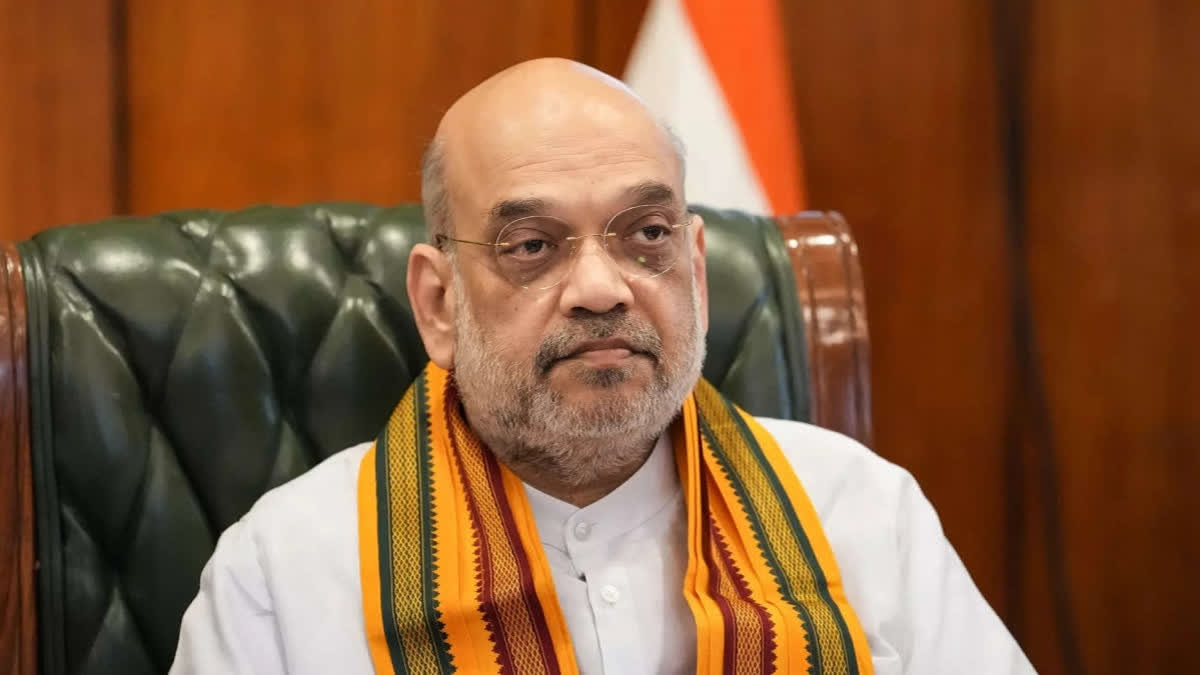New Delhi: The new Bharatiya Nyaya Sanhita Bill, 2023, has for the first time has defined terrorism as a separate offence and also a new provision on mob lynching has been included for murder on the basis of personal belief, caste or community, sex, language, place of birth.
The Bill was introduced in the Lok Sabha by Union Home Minister Amit Shah on Friday before the Lower House of the Parliament was adjourned sine dine. The Bill has been referred to the Standing Committee on Home Affairs.
Defining terrorism, the new Bill says a person is said to have committed a terrorist act if he commits any act in India or in any foreign country with the intention to threaten the unity, integrity and security of India, to intimidate the general public or a segment thereof, or to disturb public order by doing an act, using bombs, dynamite or any other explosive substance or inflammable material or firearms or other lethal weapons or poison or noxious gases or other chemicals or any other substance (whether biological or otherwise) hazardous in nature in such a manner so as to create an atmosphere or spread a message of fear, to cause death or serious bodily harm to any person, or endangers a person’s life.
Also read: ‘Harsher penalty, wider interpretation’, sedition law gets a new nomenclature under new bill
This new definition is very exhaustive and brings into its fold terrorist activities by bombs and biological gases or noxious gases, which are hazardous in nature to create an atmosphere or spread a message of fear.
The Bill further widens the definition of terrorism by including damage or destruction of property or disruption of any supplies or services essential to the life of the community, destruction of a government or public facility, public place or private property, and also damage or destruction to critical infrastructure.
Defining terrorism, the Bill also includes threatening to kill or injure such a person in order to compel the government to do or abstain from doing any act, or destabilise or destroy the political, economic, or social structures of the country, or create a public emergency or undermine public safety. It also included the Treaties listed in the Second Schedule to the Unlawful Activities (Prevention) Act, 1967.
The Bill proposes to punish terrorist activities with death or imprisonment for life without the benefit of parole, along with a fine which shall not be less than rupees ten lakhs. The Bill also proposes that any person, who is a member of a terrorist organisation, which is involved in terrorist act, shall be punishable with imprisonment for a term which may extend to imprisonment for life, and shall also be liable to fine which shall not be less than rupees five lakhs.
“Whoever, intentionally harbours or conceals or attempts to harbour or conceal any person who has committed an offence of any terrorist act shall be punishable with imprisonment for a term which shall not be less than three years but which may extend to imprisonment for life…..”, said the Bill, adding that this sub-section shall not apply to any case in which the harbour or concealment is by the spouse of the offender.
Also read: New Bill on IPC will completely repeal sedition offence: Amit Shah
The Bill proposes life imprisonment for whoever, holds any property directly or indirectly, derived or obtained from commission of terrorist act or proceeds of terrorism, or acquired through the terrorist fund, or possesses, provides, collects or uses property or funds or makes available property, funds or financial service or other related services, by any means, to be used, in full or in part to carry out or facilitate the commission of any terrorist act.
Defining a terrorist, the Bill says that any person who develops, manufactures, possesses, acquires, transports, supplies or uses weapons, explosives, or releases nuclear, radiological or other dangerous substance, or cause fire, floods or explosions; commits, or attempts, or conspires to commit terrorist acts by any means, directly or indirectly.
The proposed Bill includes a new provision on mob lynching, which has been included under the offence of murder. “When a group of five or more persons acting in concert commits murder on the ground of race, caste or community, sex, place of birth, language, personal belief or any other ground each member of such group shall be punished with death or with imprisonment for life or imprisonment for a term which shall not be less than seven years, and shall also be liable to fine”, says the new Bill.
For causing death by negligence, the new Bill says that whoever causes the death of any person by doing any rash or negligent act not amounting to culpable homicide, shall be punished with imprisonment of either description for a term which may extend to seven years, and shall also be liable to fine.
The Bill proposes a maximum punishment of ten years for whoever causes the death of any person by doing any rash or negligent act not amounting to culpable homicide and escapes from the scene of incident or fails to report the incident to a police officer or magistrate soon after the incident.



